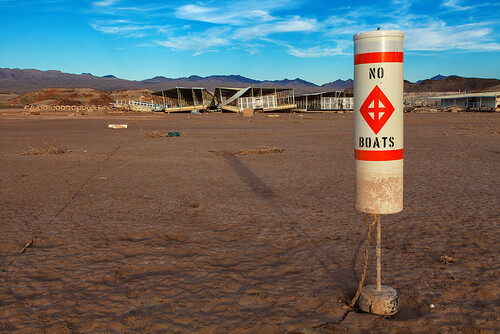The megadrought in the southwestern United States, which saw water supplies in parts of the region severely depleted and water levels in reservoirs hit record lows, has become one of the worst prolonged dry periods in recorded human history.
The ongoing situation is now the driest 22-year period in at least 1,200 years, according to a newly released study in the Nature Climate Change journal, with the drought set to “persist through 2022” and match the length of a drought in the late 1500s.
The impacted area stretches from southern Montana to northern Mexico and from the Pacific Ocean to the Rocky Mountains, according to researchers. This is the “largest [southwestern area of North America] to experience a top-five 22-year drought-severity ranking in at least 1,200 years,” the study claimed.
Examining tree ring data going back to 800 AD, the study’s lead researcher, Park Williams from the University of California, identified only four other megadroughts during the period since then.
“We have a society that’s relying on there being the amount of water there was in the 1900s. But now with the number of water molecules available to us declining, it really is time for us to get real about how much water there is for us to use,” Williams told NPR, calling for a “change” in “our relationship with water.”
The study drew a clear link between global warming and the prolonged drought, using a model that attributed 42% of conditions to human-induced climate change, with researchers fearing that the dry conditions in the area are not close to ending.
In 2021, images taken from space showed the impact the drought was having on reservoirs, with Lake Mead reaching its lowest level ever recorded and Lake Powell having seriously deteriorated water supplies.
![]() Please help keep us afloat. Donate here
Please help keep us afloat. Donate here




